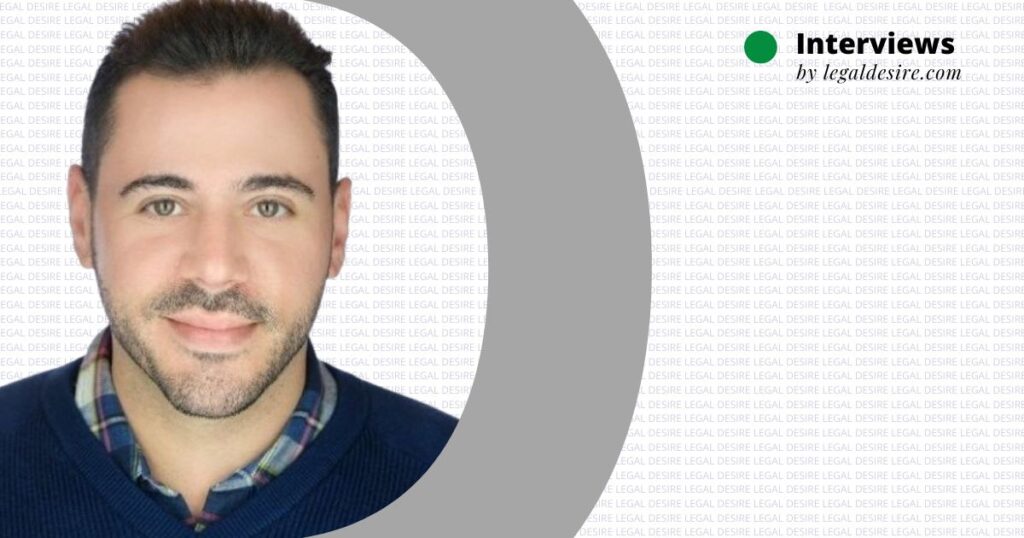Now Reading: Interview with Sarosh Zaiwalla on Nirav Modi’s extradition case
-
01
Interview with Sarosh Zaiwalla on Nirav Modi’s extradition case
Interview with Sarosh Zaiwalla on Nirav Modi’s extradition case
The Westminster Magistrates’ Court on Thursday (May 30) denied bail to fugitive economic offender Nirav Modi for the fourth time. The court has extended custody of the businessman accused in Punjab National Bank (PNB) fraud till June 27, 2019.
Following the case developments, in interview Mr Sarosh Zaiwalla, Founder and Senior Partner, Zaiwalla & Co LLP answers on key questions with regards to the Nirav Modi’s extradition case. Mr Zaiwalla has been involved in over 1,000 international litigations and arbitrations in the fields of Energy, Maritime and Construction either as solicitor, Counsel, Party-Appointed Arbitrator or Sole Arbitrator. Here’s the interview with him giving insights about Nirav Modi’s Extradition case.
-
Can you tell us the current situation on the Nirav Modi case?
Nirav Modi is currently lodged in the Wandsworth prison in London which is known to be a very crowded prison. His multiple attempt to seek bail had been rejected by the Chief Magistrate Emma Arbuthnot at Westminster Magistrates’ Court. This is a clear contrast to Vijay Mallya’s case, as Mallya’s case was granted bail immediately in the first attempt. The difference in Nirav Modi’s case is the judge must have been shown evidence which has shown a serious risk that he may temper with evidence or perhaps there is an increased flight risk of Mr Modi, as he holds different passports obtained through his international investments. Mr Modi’s application for bail was once again rejected by the Westminster’s Magistrate today, extending his custody until the 27th of June, with the next case management hearing scheduled for the 29th of July.
-
What is expected from the next hearing in the case? (best and worst case scenario)
Mr Modi’s application for bail requires renewal every month. Three times rejection of his bail application does suggest that the judge is satisfied that there is a serious risk he will interfere with the evidence if he is freed from judicial custody. Judge Arbuthnot who is the presiding judge had previously stated that “This is a large fraud and the doubling of security to 2 million pounds is not sufficient to cover a combination of concerns that he would jump his bail and fail to surrender and that there existed a risk that he would temper with evidence. Obviously the Indian government team has in Mr Modi’s case done good homework to support India’s extradition application.
The judge had also previously noted that he had “squirrelled away” funds that he may use for his escape from the UK if released on bail, and therefore we can expect him to continue being remanded in custody.
Clare Montgomery QC the legal representative of Mr Modi had previously informed the court that her client’ experience in custody “has been vivid and damaging” and that Mr Modi is “willing to abide by any bail conditions imposed by the court because Wandsworth is unliveable and makes the effective preparation of his case virtually impossible,”. We can expect Mr Modi’s lawyer to once again raise this concern, and it’s unlikely the court will budge. If it does, that would be a best case scenario for Mr Modi.
-
Indian authorities are set to mount a fresh extradition bid for Modi with new evidence in the form of statements of directors allegedly held hostage by him in Cairo. Do you think this is sufficient to nail the accused? (Especially since the quality of evidence and documents submitted by India has long been an issue.)
In the ongoing proceedings, Mr Modi has already been accused of tampering evidence, however testimonies by witnesses may prove key in establishing a stronger case against Mr Modi. The legal test for extradition is that the accused had committed a serious criminal acts in India which acts also constitute criminal act in UK.
I understand that the issue of quality of evidence has been raised by Mr Modi’s legal team but that is an issue of whether there is good evidence of criminal conduct in India and the extradition judge will need to decide this. Quality of evidence against Mr Modi will play a key role both at the hearings tomorrow and ultimately at the extradition trial.
This was also not the first instance of the quality of evidence being raised by the courts in relation to India’s extradition requests. This was a concern even during the extradition trial of Vijay Mallya but the court had rejected this defence in the Mallya case. Quality of evidence presented on Indian governments behalf will therefore be very important.
-
From Vijay Mallya to Nirav Modi, are there any legal lapses that make the United Kingdom the go-to escape for Indian fugitives?
It not due to the ‘legal lapses’ that Indian fugitives choose to come to the UK. In fact, it is completely opposite of that. The UK is signatory to the European Convention on Human Rights (ECHR) which is completely different organisation to the EU. So even if the UK leave the EU, it will still be signed up to the ECHR and thus continue to comply with its laws. In addition, the human rights under the ECHR are protected by the Human Rights Act 1998.
The ECHR or the Human Rights Act 1998 provides that every human being must have some basic rights such as: right to life, right to a fair trial, and right not to be tortured or treated in an inhuman way. So, the UK courts in compliance of the English as well as European laws must be satisfied that even an accused must be given the same basic rights whether or not the trial is taking place in the UK. Therefore the UK judges would consider these issues while making a decision whether a person should be extradited.
Yes, it may sometimes feel that it takes longer to get someone extradited to India, but the human right principles remains the same. An accused or a person to be extradited must be given a fair trial in the UK along with a right to appeal to challenge the extradition decision take by a Magistrate. But there are strict time deadlines to comply with while filing an appeal and the appellant must have good grounds to challenge the decision.
It must be reminisced that India lost some of the previous extradition cases as the conditions prevalent in Indian prisons were not up to the international minimum standards. India has learnt from its previous errors, and improved conditions in its prisons, especially when dealing with individuals who have to be extradited back to India.
-
Has the extradition treaty 1992 between the two countries or European Convention on Human Rights being used to shield accused criminals from India? If so, how? (With reference to British judiciary’s decision to accept Mallya’s argument that Indian prisons are not good enough for him)
As explained above, the UK is a signatory to European Convention on Human Rights. If the courts deem that a person to be extradited is likely to face torture or death penalty, or the extradition is due to political reasons, they may deny the extradition request. This is one of the most preferred arguments used on behalf of defendants to avoid being sent back to their home country. As the India-UK extradition treaty is subject to the provisions of the European Convention on Human Rights, any country which seeks to apply for an extradition needs to clearly satisfy human rights guarantees, including on assuring a proper and impartial trail in the home country.
As in the case of Vijay Mallya, the UK courts in fact sought clear assurances from the Indian government, including on the prison conditions in Mumbai, with India having to produce video proof to back their account.
At today’s hearing, Judge Arbuthnot and Ms Clare Montgomery QC (Mr Modi’s barrister) agreed that if Mr Modi is to be held in the same premise/cell as Mr Mallya, then the court would accept that it complies with the human rights laws as the court has already given a decision stating that the said premise/cell does not breach Mr Mallya’s human rights. So this is a swift way to deal with the similar issue and would save time in these proceedings.
So whilst the Judge had made a ruling today, asked the Indian government to provide information about the prison where Nirav Modi would be held in India within14 days. But if this should not take longer if the government can confirm that Mr Modi would be held in the same premises or cell at Arthur Road jail.
-
With a new government swearing-in, can you tell us how India can deal with white collar fugitives in the future?
One of the best ways to deal with them is to approach a pro-active approach instead of a retaliatory approach. The Indian government should put in procedures by which travel documents held by an individual can be flagged up so that the port and customs authorities can stop anyone leaving the country. The similar information can be provided to the airline check-in desks. In the recent case of de-plaining of Mr Naresh Goyal (founder of Jet Airways) he was allowed to board the flight, when he can be stopped at the check-in desk, or at the immigration/custom desk if the concerned official had some indicator while checking Mr Goyal’s passport that he should be allowed to leave the country.
About Zaiwalla & Co.
- Europe’s first city law firm set up by an Asian – Sarosh Zaiwalla; based in Chancery Lane set up 35 years ago
- Tony Blair interned with the firm and was dismissed.
- The firm triggered the sanctions debate; represent Iran’s largest private bank Bank Mellat which has the largest case against the UK government for USD $4 Billion.
- The firm has been at the forefront of handling major cases in India and for Indian origin clients which include acting for the President of India in over three hundred Indian shipping maritime arbitration cases in London at a time when the nation was facing an economic crisis and had limited foreign exchange.
- Over the years, Mr Zaiwalla has been involved in over 1,000 international litigations and arbitrations in the fields of Energy, Maritime and Construction either as solicitor, Counsel, Party-Appointed Arbitrator or Sole Arbitrator.
- Some of the recent high profile cases handled by the firm include representing Bank Mellat & Bank Tejarat – Iranian Private Banks against western sanctions, Petropars – Iranian Oil & Gas, Alexander Dobrovinsky – Prominent Russian Businessmen and Robert & Vincent Tchenguiz – London Based Property Billionaires.








